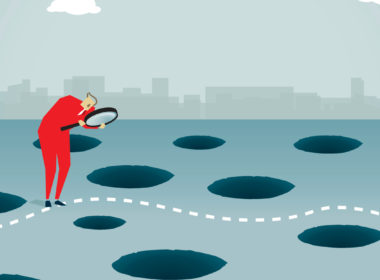Snapshot
- Pending changes to the Environmental Planning and Assessment Act 1979 will create a new system of tiered penalties for planning offences.
- The maximum tier 1 penalty will be $5 million for a corporation and $1 million for an individual. To obtain a tier 1 penalty, the prosecutor will need to show intentionality and at least a likelihood of significant environmental harm.
Pending changes to the Environmental Planning and Assessment Act 1979 (NSW) (‘the Act’) are set to create a new tiered system of penalties for planning law breaches. These changes received assent in November 2014 but had not commenced at the time of writing.
In the Second Reading Speech introducing the amendments, the Minister for Planning, Pru Goward, said the changes had been made because current fines were no longer a strong enough deterrent, and did not meet community expectations of punishment.
The amendments implement some of the recommendations of the 2012 NSW Planning System Review relating to criminal enforcement. However, the government has not taken up a recommendation to include imprisonment as a sentencing option for serious planning offences (The Way Ahead for Planning in NSW: Recommendations of the NSW Planning System Review at 110).
The new tier 1 maximum penalty will be $5 million for a corporation and $1 million for an individual. In order to obtain such a penalty, the prosecutor must show to the criminal standard of proof that the offence was committed intentionally, and that the offence caused or was likely to cause significant harm to the environment or death or serious injury to a person (new s 125A).
In most other cases, the penalty will be a tier 2 penalty. The maximum tier 2 penalty is $2 million for a corporation and $500,000 for an individual. It is not necessary for the prosecutor to prove either environmental harm or a particular state of mind in order to obtain this penalty (new s 125B). Certificate-related offences, and certain other offences specifically provided for, will be subject to a tier 3 penalty, which is a maximum of $1 million for a corporation and $250,000 for an individual (new s 125C).
This regime will replace the previous maximum penalty under the Act, which was $1.1 million for all offences against the Act, apart from some specific offences where a lesser penalty was specified in the offence provision (old s 126).
In addition, the amendments will give courts the power to make orders under pt 8.3 of the Protection of the Environment Operations Act 1997 (NSW) (‘the POEO Act’), including monetary benefit orders. This is an order that the defendant pay, in addition to a fine, an amount representing any monetary benefits acquired by or accruing to the defendant as a result of the commission of the offence (POEO Act s 249).




